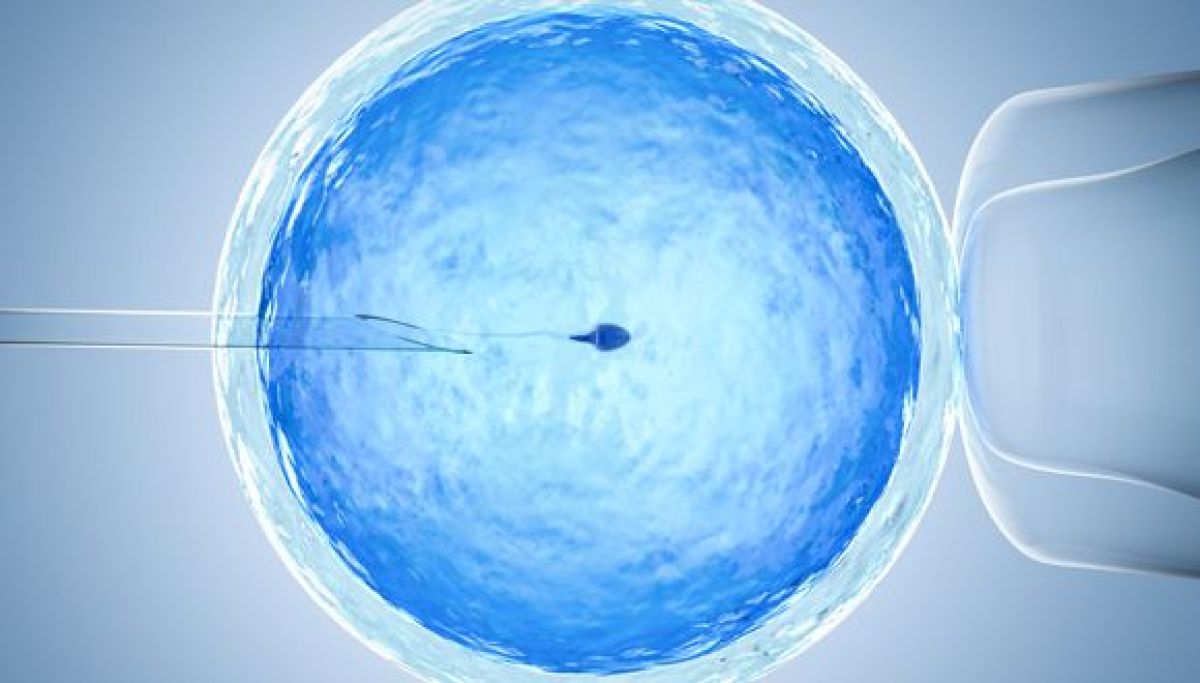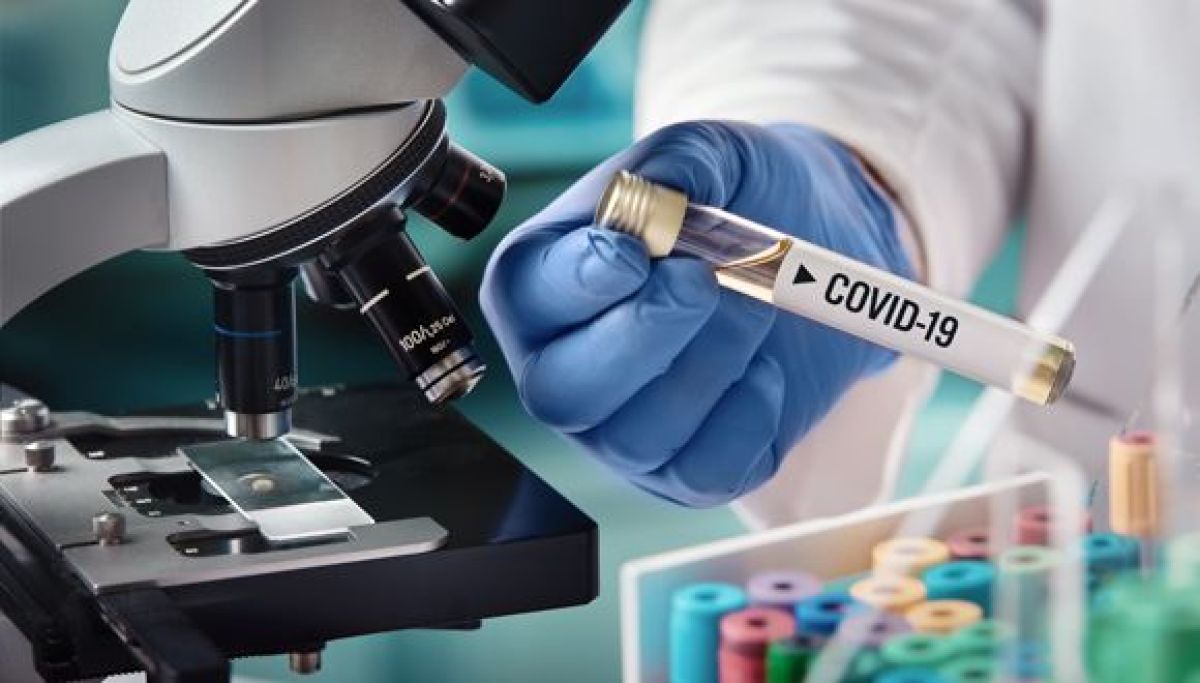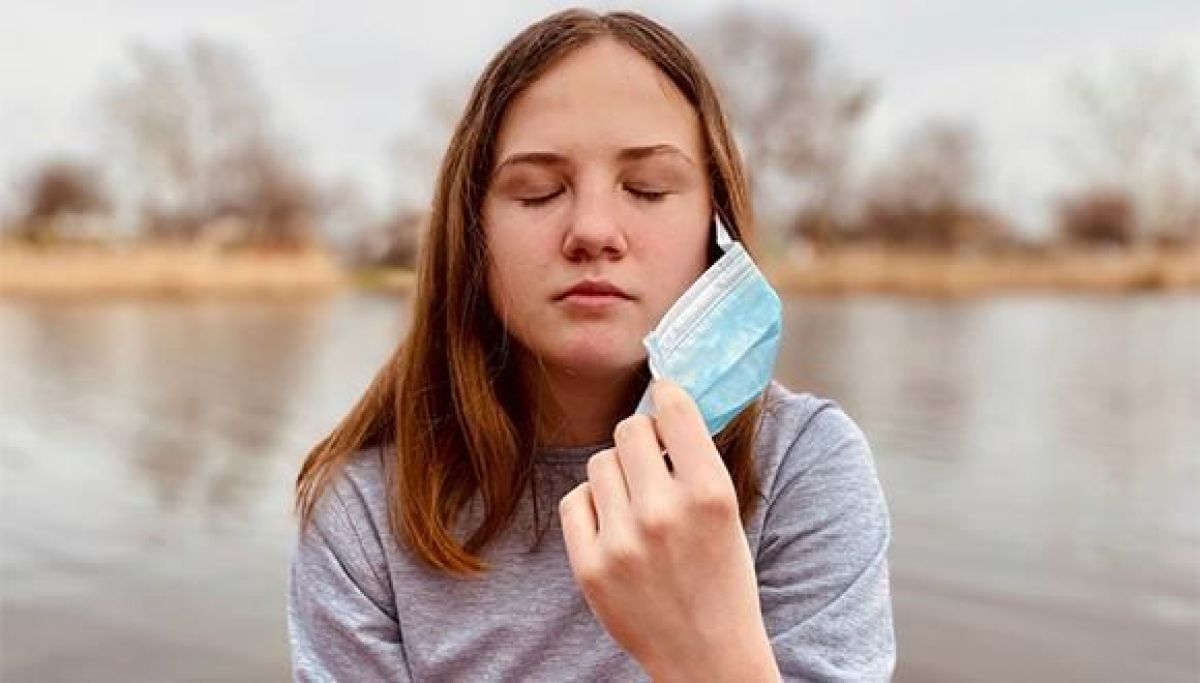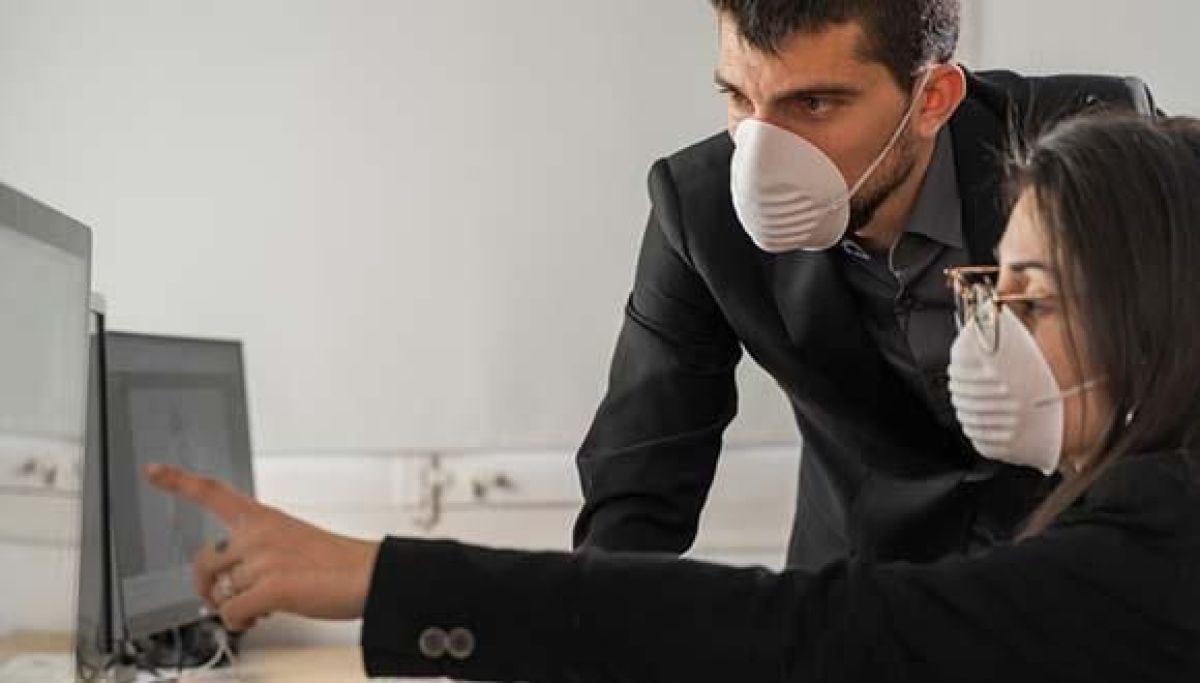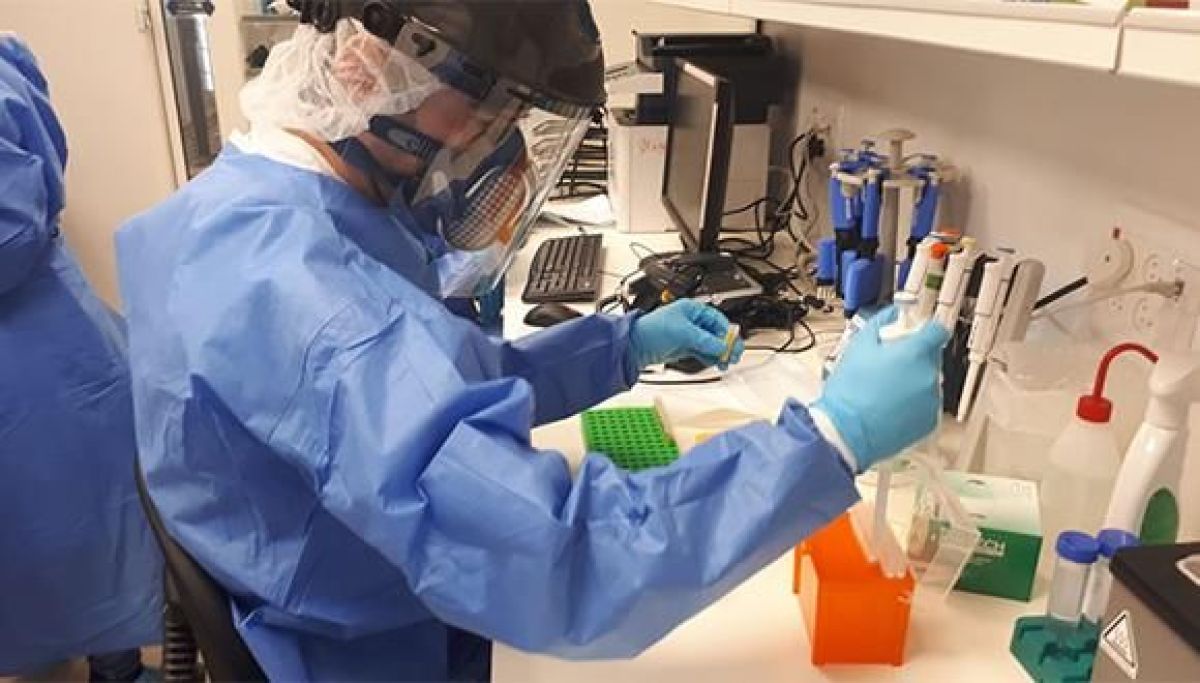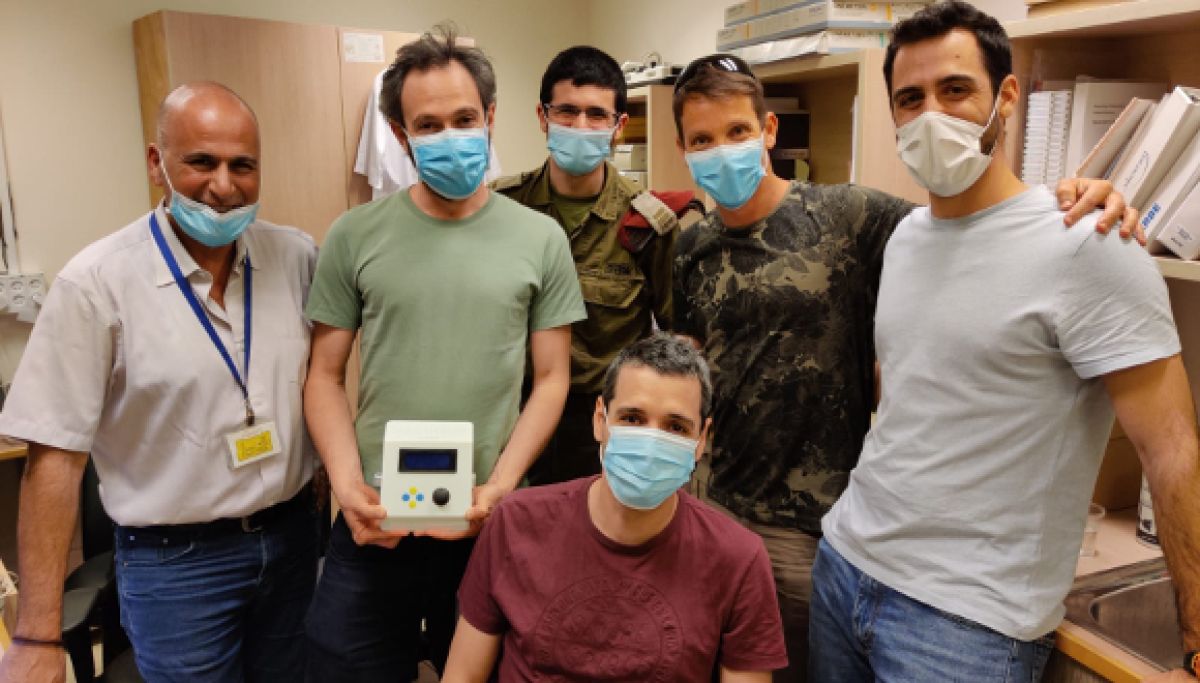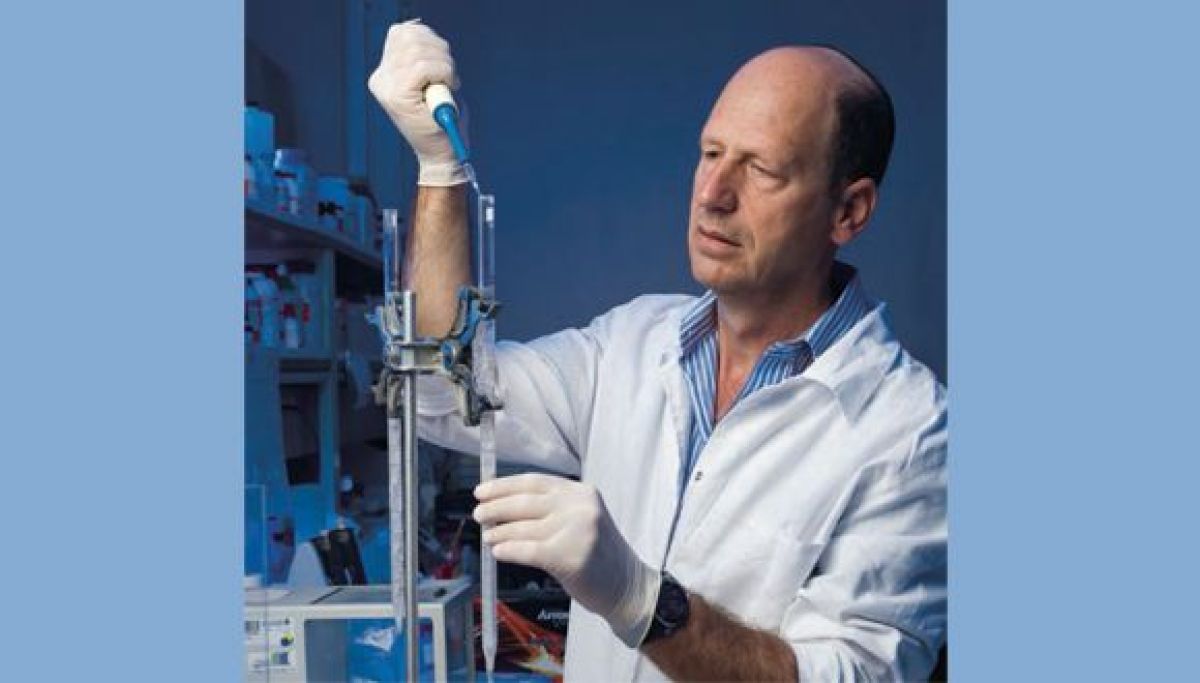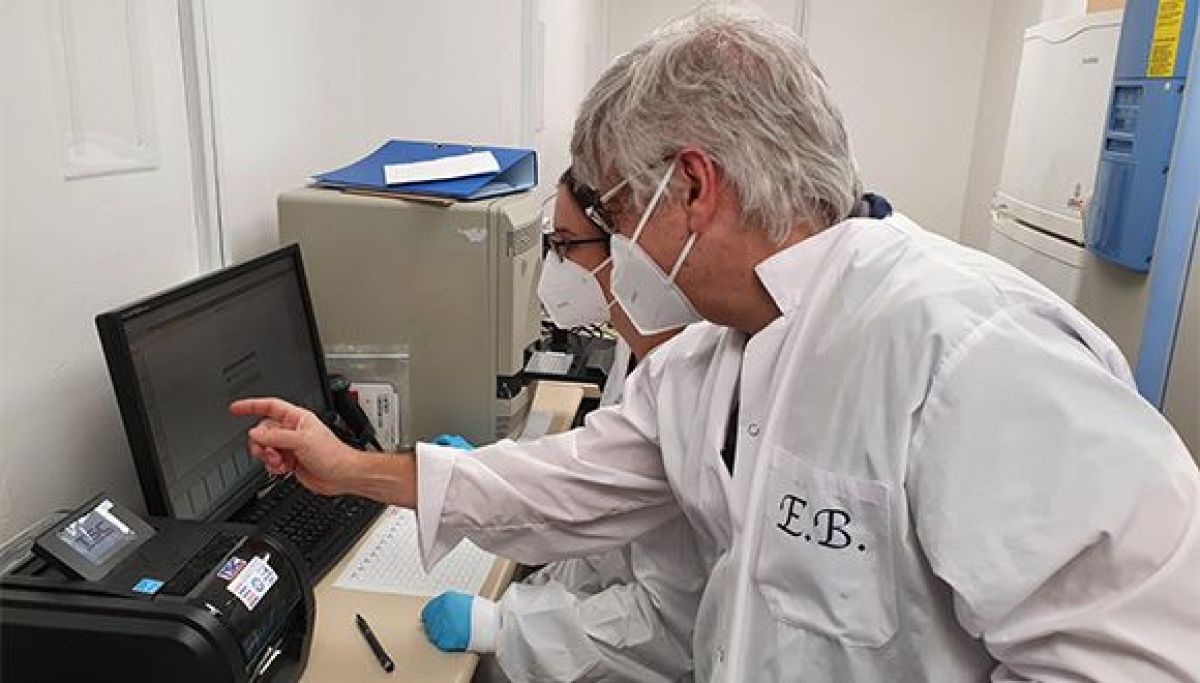- Aiding the authorities focus quarantine efforts, understand if there are “super-spreading” infected individuals, and predict how quickly the disease spreads or wanes.
- Screening Israeli COVID-19 survivors for antibodies as a basis for therapies and a vaccine.
- Developing novel inhibitors for viral entry and viral activity.
- Finding candidate compounds to kick in the body’s natural immunity to COVID-19 and ability to overcome infection.
- Understanding lung immune responses to viral infection.
- Introducing a robotic system for much faster detection of coronavirus presence in tests.
- Repurposing known and FDA-approved drugs for prevention and treatment.
Tag: Medicine
TAU partners with pharma company to develop COVID-19 vaccine
The epitope-based vaccine will target the most vulnerable part of the viral spike protein
Targeting the Achilles’ heel of coronavirus
“The smaller the target and the focus of the attack, the safer and greater the effectiveness of the vaccine,” he adds. “The virus takes far-reaching measures to hide its RBM from the human immune system, but the best way to ‘win the war’ is to develop a vaccine that specifically targets the virus’s RBM.” Keren Primor Cohen, Ramot CEO says: “We hope that through this collaboration with Neovii, it will be possible to produce an effective vaccine that targets the coronavirus’s Achilles’ heel and will accelerate the development of a protective vaccine against this global threat.” Jürgen Pohle, Neovii CEO, adds: “The outbreak of the COVID-19 pandemic has demonstrated how fragile and vulnerable our societies are in the face of a pandemic. We are extremely excited about our collaboration with Professor Gershoni and TAU which provides Neovii with a first-in-class platform for the rapid development of promising vaccine candidates towards any future emerging pandemics including COVID-19. Furthermore, the COVID-19 vaccine is highly synergistic to Neovii’s core expertise in the development and manufacturing of passive polyclonal antibodies and provides an opportunity to bring a COVID-19 immunotherapy in a rapid manner.” Neovii’s long-standing and well-established experience and capabilities in developing, manufacturing and commercializing biopharmaceuticals will support the objective to have a vaccine ready for use in the general population on an accelerated timeline.What about the environment?
In an online seminar, Prof. Colin Price connects the dots between two current disasters: the climate crisis and the coronavirus crisis
The coronavirus pandemic caught us off guard. Without any warning, it transformed our daily routines overnight and caused a global shock, which will take a long time to recover from. The climate crisis, on the other hand, has been a subject of discussion for scientists for many years. Are there any points at which these two threats connect? And will dealing with the immediate threat, the coronavirus, also lead to more ecological and considerate behavior towards the environment? Prof. Colin Price, head of the Porter School of Environmental Studies and Earth Sciences, created an online seminar on the topic and called on heads of state to take advantage of the opportunity we’ve been given to save the world from an irreversible crisis which is about to reach the point of no return.
Immediate sacrifice for a long-term solution
Since the beginning of the coronavirus crisis, we’ve realized in a few weeks how much power nature has, and how it can neutralize human systems. Entire populations and sectors have been shut down and defined as high risk, economies and medical systems have been paralyzed, prosperous industries are suddenly at the brink of collapse, disrupted supply chains and more.
“Everyone understands that we have to act swiftly around the coronavirus, in order to achieve a fair, long-term solution,” says Prof. Price, and immediately points out the similarity to an issue we’ve been dealing with for a long time – the climate crisis. “While the Corona crisis is mostly threatening to humans, the effects of the climate crisis, evident in deadly heat waves, huge fires, floods, storms and sea level rise, are hitting a much wider ‘target audience’. Animals, infrastructure, natural resources – everything is under threat. The main problem is that because the climate crisis is not immediate, like coronavirus, and because it’s not personal – it’s not taken seriously enough, and long-term solutions aren’t being considered.”
Professor Price referred to similar points in both crises, including the weight that must be given to the exponential curve of both, the speed with which we have to react in order to stop the destructive effects in time, and the immediate sacrifice that must be made to gain a better long-term outcome for future generations.
Change will be good for us and the environment
“There is no doubt that when we go back to normal after the coronavirus crisis, everything will be different,” says Prof. Price. “I estimate that thanks to online communication, we will see a decrease in the volume of business trips abroad and, as a result, the demand for oil will decrease. People will work more from home and there will no doubt be companies that adopt this format, and will completely give up paying office fees. There will be greater investment in new infrastructure in health systems, distance learning, local manufacturing and more changes that, if examined in the environmental aspect – are undoubtedly friendly to the natural resources we breathe and consume, which we want to protect.”
“If you ask me what we should learn from the current crisis, it’s first and foremost that we should listen to scientists. From the first day the virus broke out in China, they warned that it was an epidemic that would affect the whole world. So should we listen to the scientists who have been studying the climate crisis. I’ve been working in the field for 30 years and I can say for sure – people don’t listen. World leaders don’t listen.”
“We all need to understand the severity of the exponential curve, and understand the cost of our actions for the global village we live in, both on the coronavirus and climate issues. We have to remember that our actions on one side of the world affect people and the environment on the other.”
Lower the level of vulnerability and increase our resilience
According to Prof. Price, the role of governments is critical in managing the world response to both crises. “To reinvigorate the economy at the end of the Corona crisis, we have the opportunity to encourage funding, job allocation and investment in green technologies, for example in the public transport sector, to make it more efficient, cost-effective and green, to provide a more promising future and prevent the arrival of the next crisis.”
“The risk of a crisis, no matter if it’s an earthquake, fire or deadly virus, depends on three main variables: the threat itself, who is exposed to it and what level of vulnerability there is,” Prof. Price explains. “Once we manage to neutralize one of these variables, our chances of getting hurt are smaller.”

Prof. Colin Price
A world first: TAU to establish multidisciplinary Epidemic Research Center
The Center will bring together experts in the field and help the State of Israel deal epidemic-related crises
Tel Aviv University joins national Coronavirus testing system
TAU’s specialized Corona Lab is expected to conduct up to 1,600 tests a day
A medical marvel in 80 hours
The decision to establish a lab was made shortly after the coronavirus crisis broke out in Israel. From start to finish, the lab was built in a record 80 hours, with construction kicking off on Tuesday, March 24th, at 7 AM, and finishing Friday, March 27th. A Health Ministry official yesterday reviewed the lab to ensure that it meets health and safety protocols, and the lab is now fully operational. “We realized immediately how critical testing was and how we at the University could contribute to Israel’s diagnostic landscape,” explains Prof. Munitz. “We contacted University management, who got involved immediately and quickly approved a budget for the project. It was not an easy decision. It was unclear whether the Health Ministry would approve, and we did not know exactly what the protocol was or what was required — but we knew we needed to act. The safety of the team operating the lab is and remains our highest priority, and we are taking every necessary precaution in strict alignment with Health Ministry regulations. I have no doubt that our collaboration with the Health Ministry will greatly assist in advancing the national testing system.”TAU lab identifies effective antibodies from recovered Coronavirus patients
Antibody-based therapies can be used to protect at-risk populations, including medical workers, from the virus
The weak link in the virus chain
In the long run, identifying effective antibodies against virus neutralization could also accelerate the development of vaccines for the disease. Dr. Freund, who together with her team pinpointed the antibodies in blood samples of recovering patients, say that antibodies would be key to identifying the elusive vulnerable Achilles’ heel of the virus, which scientists have identified as somewhere along its spike protein, the structure that allows it to break into a cell. Dr. Freund is collaborating with researchers in San Diego to test the efficacy of antibody treatments in animal models against a live active virus. The trials are scheduled to take place this month. Only if and when the trials are successful in animal models will the option of clinical trials be considered. “If we complete the trials successfully and are able to eventually develop this treatment, it could be used to help treat at-risk patients such as the elderly or immunocompromised patients. Antibodies can also remain active in the blood for many weeks – up to two months – so injecting antibodies can afford medical teams and other at-risk groups temporary protection against the virus.”TAU Student, COVID-19 Sprint Invent Disposable Ventilators to Help Treat Coronavirus Patients
TAU Student, COVID-19 Sprint Invent Disposable Ventilators to Help Treat Coronavirus Patients
Israel’s Health Ministry has approved the use of a prototype in a pilot study Together with COVID-19 Sprint, a technology task force led by Assuta Ashdod Hospital, Rafael Advanced Technology and Weizmann Institute of Science, a doctoral student at Tel Aviv University‘s Iby and Aladar Fleischman Faculty of Engineering is helping to develop an inexpensive disposable ventilator specifically tailored to treat COVID-19 patients. It’s called MANSHEMA, is cheap, suitable for mass production and easy to use, and Israel’s Health Ministry recently approved the use of its prototype in a pilot study. “Around the world, hospitals overwhelmed with COVID-19 patients are experiencing a shortage of ventilators,” explains Stav Bar-Sheshet, a doctoral student of engineering engaged in research for the project. “This is a serious crisis, which requires creative and revolutionary thinking, thinking that will result in the efficient, fast and cheap solutions.” The idea, he says, is to produce a cheap, disposable ventilator from existing parts that are widely available. While MANSHEMA is disposable, it can work nonstop for three months at a stretch. Most critically for the novel coronavirus, the cheaply produced ventilator is tossed out after each use, drastically reducing the risk of infection by medical staff and hospital patients. “Coronary disease is highly contagious,” adds Bar-Sheshet. “The unique idea of the disposable respirator is that after being used on one patient, it will be destroyed and a new ventilator applied to a subsequent patient.” MANSHEMA is a flow driven, electronically controlled system that allows the patient to determine his or her own respiratory rate and to alert of malfunctions and respiratory failures. The system assists the patient to breath by providing what’s called Bi-level Positive Pressure, meaning the system maintains a positive pressure at all times to assist in cases of respiratory distress. Both exhalation and inhalation pressures can be adjusted by both the patient and medical staff. The system is noninvasive and particularly suited to low to moderate risk patients. “An electrically-controlled-mechanical-valve opens and closes the exhaust to allow real-time inhale and exhale,” says Bar-Sheshet. “If the patient stops breathing, alerts are triggered and the system automatically enters a mandatory respiration mode.” In a spirit of friendly competition, COVID-19 Sprint has set up two to three teams for each challenge. Each team contains a core group of builders (product manager, engineers, solution architects), with a clinical advisory group advising each challenge. Volunteers with experience as engineers, product managers, clinicians, care managers, project managers are welcome to join existing teams or create new teams. “To date, the team, with the support of the Health Ministry, have a few prototypes tested by medical staff at Assuta Ashdod Hospital,” concludes Bar-Sheshet. “The Health Ministry helped us meet Helsinki requirements that will now allow us to proceed to a clinical trial on patients with respiratory problems and on COVID-19 patients.”TAU to partner with InnoCan Pharma on revolutionary COVID-19 treatment
The technology, which is expected to be administered by inhalation, will be tested on several lung infections
InnoCan Pharma Corporation announced that its wholly-owned subsidiary, InnoCan Pharma Ltd. of Herzliya Israel, has entered into a sponsored research agreement with Ramot at Tel Aviv University to jointly develop a novel, revolutionary approach to treat COVID-19 by using cannabidiol (CBD) loaded exosomes (“CLX”). Under the terms of the Research Agreement, InnoCan and a team led by Prof. Daniel Offen, a leading researcher specializing in Neuroscience and Exosome technology at Tel Aviv University, will collaborate to develop the cell therapy based product on Prof. Offen’s work in the field. InnoCan and Ramot are collaborating on a new, revolutionary exosome-based technology that targets both central nervous system (CNS) indications and the Covid-19 Corona Virus. CBD-Loaded exosomes hold the potential to provide a highly synergistic effect of anti-inflammatory properties and help in the recovery of infected lung cells. The techology, which is expected to be administered by inhalation, will be tested on a variety of lung infections. Exosomes are small particles created when stem cells are multiplied. Exosomes can act as “homing missiles” when the cell healing properties of the exosomes are combined with the anti-inflammatory properties of CBD. Exosomes also have an important role in cell-to-cell communication, which can be beneficial to additional treatments for CNS indications such as epilepsy and Alzheimer’s Disease.Background
The world is suffering from a rapid rise in illness due to the fast growing spread of the COVID-19 pandemic. The lungs are the organ most affected by COVID-19, causing pneumonia that rapidly progresses to acute respiratory distress syndrome and can further result in respiratory failure, septic shock, multi-organ failure, and in the most severe cases death. Recent in-vivo and in-vitro studies have demonstrated that exosomes derived from mesenchymal stem cells (MSC) can promote regeneration and improve immune reaction processes in damaged tissues. Exosomes contain anti-inflammatory agents that can target inflamed organs. Prof. Offen and his team have already successfully loaded exosomes with various molecules. They have also succeeded in treating different tissue injuries in animal models, while significantly reducing inflammation and pathological impairment. To date, there have been hundreds of clinical studies using exosomes globally, demonstrating their therapeutic potential at different applications. Animal studies have also demonstrated CBD as effective in reducing lung inflammation. Based on these findings, InnoCan believes that its CLX therapy has the potential to treat the COVID-19 virus by combining CBD with exosomes, thereby creating therapeutic synergies. The suggested combination may have strong synergetic effects, thereby increasing the potential efficacy of planned treatments. Prof. Dani Offen, of the Sackler School of Medicine and Sagol School of Neuroscience said, “I am pleased to work with the InnoCan team on this exciting CLX development project. We are facing a challenging time, and I believe our unique approach holds a promise to offer a treatment for COVID-19, pneumonia and perhaps for other lung inflammations as well.” Iris Bincovich, CEO of InnoCan’s CEO, also commented, “COVID-19 has quickly become one of the largest challenges in healthcare today. With the development of CLX, we are creating a new treatment, to join the global mission to combat the effects of COVID-19. We are determined to make a difference as quickly as possible to assist patients worldwide.” Keren Primor Cohen, CEO of Ramot at Tel Aviv University, summarized, “We hope that this collaboration with Innocan will assist in transforming Prof. Offen’s promising technology into a real treatment for the global threat of COVID-19”. Featured image: Prof. Daniel Offen (photo: Jonathan Blum)TAU Scientist Awarded U.S. Patent for Novel Coronavirus Vaccine Design
The patent, approved in March, covers a vaccine that targets the most vulnerable point in a coronavirus’s structure, through which it penetrates human cells
Researchers worldwide are racing at breakneck speed to develop potential vaccines and drugs to fight the novel coronavirus, SARS-Cov-2. Now, the United States Patent and Trademark Office (USPTO) has granted a patent to Tel Aviv University’s Prof. Jonathan Gershoni of the School of Molecular Cell Biology and Biotechnology at TAU’s George S. Wise Faculty of Life Sciences for his innovative vaccine design for the corona family of viruses.
The vaccine targets the novel coronavirus’s Achilles’ heel, its Receptor Binding Motif (RBM), a critical structure that enables the virus to bind to and infect a target cell.
According to Prof. Gershoni, the vaccine would reconstruct the coronavirus’s RBM, a tiny feature of its “spike” protein. Though the virus uses many different proteins to replicate and invade cells, the “spike” protein is the major surface protein that it uses to bind to a receptor — another protein that acts like a doorway into a human cell. After the spike protein binds to the human cell receptor, the viral membrane fuses with the human cell membrane, allowing the genome of the virus to enter human cells and begin infection.
“We have been working on coronaviruses for the last 15 years, developing a method of reconstructing and reconstituting the RBM feature of the spike protein in SARS CoV and subsequently in MERS CoV,” explains Prof. Gershoni. “The moment the genome of the new virus was published in early January 2020, we began the process of reconstituting the RBM of SARS CoV2, the virus that causes COVID-19, and expect to have a reconstituted RBM of the new virus soon. This will be the basis for a new vaccine, which could be ready for use within a year to a year and a half.”
The spike protein is quite large, containing about 1,200 amino acids. Some researchers have limited their research to a region of the spike known as the receptor binding domain (RBD) that comprises some 200 amino acids. However, the problem is that these relatively large areas have a variety of targets, and the immune system produces antibodies for all of them indiscriminately – reducing the effectiveness of a potential vaccine.
The RBM, a highly complex three dimensional structure, is only 50 amino acids long. Functionally reconstituting such a structure would be very challenging, but it would be an extremely effective basis of a vaccine, says Prof. Gershoni.
“The smaller the target and the focus of the attack, the greater the effectiveness of the vaccine,” he adds. “The virus takes far-reaching measures to hide its RBM from the human immune system, but the best way to ‘win the war’ is to develop a vaccine that specifically targets the virus’s RBM.”
Prof. Gershoni’s team has completed their initial steps toward reconstituting the new SARS CoV2’s RBM. The reconstitution of the new SARS CoV2’s RBM and its use as a basis for a new vaccine is covered by an additional pending patent application, filed by Ramot, TAU’s technology transfer arm, to the USPTO.
“Now that we have received serum samples we should be able to isolate RBM-based vaccine candidates in the next month or two,” concludes Prof. Gershoni. “The discovery and production of a functional RBM for the new coronavirus is fundamental and critical for the production of the vaccine we propose.
“Our successful isolation and reconstitution of such a functional RBM will allow the industry to incorporate it into a vaccine, which will be produced by a pharmaceutical company. Development of such an RBM-based vaccine should take months and then would need to be tested in Phase 1, 2 and 3 clinical trials which would then take up to a year.”

